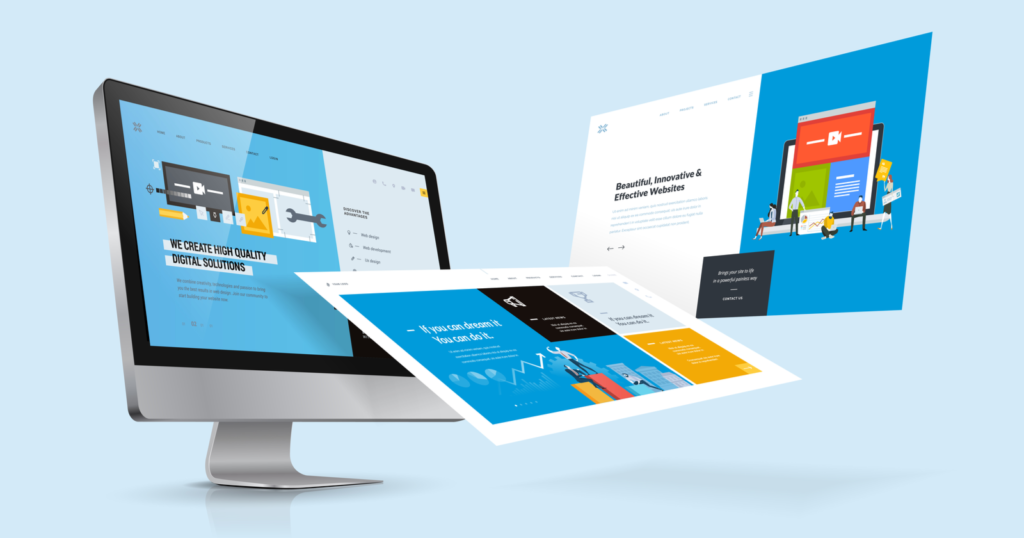
The Importance of Web Design for Marketing Success
In the digital age, where consumers heavily rely on online platforms to interact with businesses, the significance of web design Whitby in marketing cannot be overstated. Web design plays a pivotal role in shaping the user experience, influencing consumer perception, and ultimately driving marketing success.
Here’s why web design is Important for effective marketing:

- First Impressions Matter: Your website is often the first point of contact between your business and potential customers. Studies have shown that users form an opinion about a website within milliseconds of landing on it. A well-designed website with an appealing layout, visually pleasing elements, and intuitive navigation creates a positive first impression, capturing users’ attention and encouraging them to explore further.
- User Experience (UX): Web design directly impacts the user experience, which significantly influences consumer behavior. A website that is user-friendly, easy to navigate, and provides seamless interactions creates a positive user experience. On the other hand, a poorly designed website with slow loading times, confusing navigation, or cluttered layout can drive users away and negatively impact conversion rates. By focusing on web design, businesses can enhance UX and increase the likelihood of users staying on their website, engaging with the content, and taking desired actions.
- Brand Consistency and Identity: Web design Whitby plays a crucial role in establishing and maintaining brand consistency. A well-designed website aligns with the overall brand identity, including its colors, typography, and visual elements. Consistency in design across different marketing channels, such as social media profiles and email newsletters, creates a cohesive brand image and reinforces brand recognition. By incorporating branding elements into the web design, businesses can enhance brand recall and leave a lasting impression on visitors.
- Mobile Responsiveness: With the widespread use of smartphones and tablets, having a mobile-responsive website has become essential. Mobile responsiveness ensures that your website adapts and functions seamlessly on various screen sizes, providing an optimal user experience regardless of the device being used. A mobile-friendly website is not only crucial for user satisfaction but also impacts search engine rankings. Search engines, like Google, prioritize mobile-friendly websites in their mobile search results, improving visibility and driving organic traffic.
- Conversion Optimization: Effective web design is directly linked to conversion optimization. A well-designed website employs persuasive design elements and strategic placement of call-to-action buttons, leading users towards desired actions such as making a purchase, filling out a form, or subscribing to a newsletter. By optimizing the design for conversions, businesses can improve their conversion rates, maximize the return on investment (ROI) from their marketing efforts, and ultimately drive business growth.
- Search Engine Optimization (SEO): Web design elements, such as website structure, site speed, and mobile responsiveness, have a significant impact on search engine rankings. Search engines consider user experience as a ranking factor, and a well-designed website tends to provide a better user experience. Additionally, clean and organized coding practices used in web design can facilitate better crawling and indexing by search engine bots, enhancing the website’s visibility in search engine result pages (SERPs).
In conclusion, web design Whitby plays a crucial role in marketing success by shaping the user experience, establishing brand identity, optimizing conversions, and enhancing search engine visibility. By investing in a well-designed website, businesses can leave a positive impression on visitors, build brand credibility, and drive meaningful engagement, ultimately leading to increased customer acquisition and business growth.